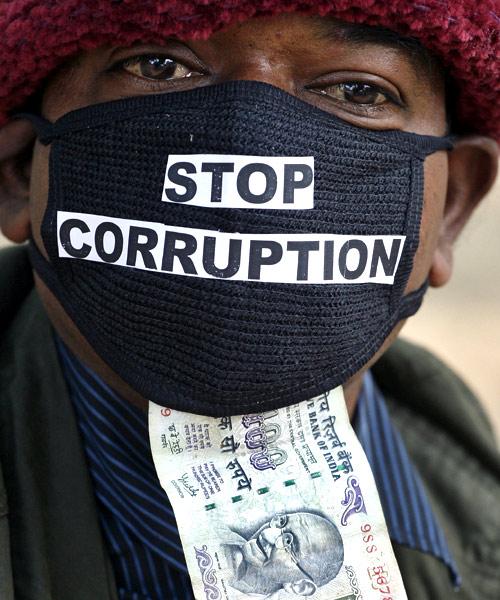
More than one person in two thinks corruption has worsened in the last two years, according to the world’s largest public opinion survey on corruption from Transparency International
The Global Corruption Barometer 2013 is a survey of 1,14,000 people in 107 countries and it shows corruption is widespread. 27 per cent of respondents have paid a bribe when accessing public services and institutions in the last 12 months, revealing no improvement from previous surveys.
Top countries where respondents paid a bribe:
Sierra Leone 84%
Liberia 75%
Yemen 74%
Kenya 70%
However, nearly 9 out of 10 people surveyed said they would act against corruption and two-thirds of those who were asked to pay a bribe had refused, suggesting that government, civil society and the business sector need to do more to engage people in thwarting corruption.
The Global Corruption Barometer 2013 also found that in too many countries the institutions people rely on to fight corruption and other crime are themselves not trusted. 36 countries view police as the most corrupt, and in those countries an average of 53 per cent of people had been asked to pay a bribe to the police. 20 countries view the judiciary as the most corrupt, and in those countries an average of 30 per cent of the people who had come in contact with the judicial systems had been asked to pay a bribe.
The Global Corruption Barometer 2013 shows a crisis of trust in politics and real concern about the capacity of those institutions responsible for bringing criminals to justice. In 51 countries around the world political parties are seen as the most corrupt institution. 55 per cent of respondents think government is run by special interests.
...
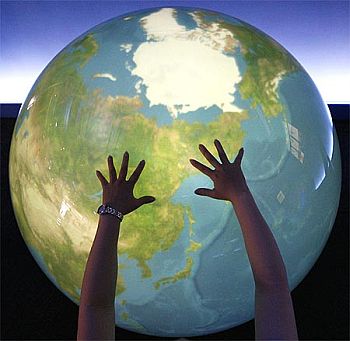
Around the world, people’s appraisal of their leaders’ efforts to stop corruption is worse than before the financial crisis began in 2008, when 31 per cent said their government’s efforts to fight corruption were effective. This year it fell to 22 per cent.
Global Survey
Parliament and legislature
7 countriesof 107 perceived Parliament and legislature to be among the institutions most affected by corruption
Political Parties
51 countries of the 107 perceived political parties to be among the institutions most affected by corruption
Military
0 countries of 107 perceived the military to be among the institutions most affected by corruption
NGOs
0 countries of 107 perceived NGOs to be among the institutions most affected by corruption.
Media
4 countries of 107 perceived the media to be among the institutions most affected by corruption.
Religious bodies
3 countries of 107 perceived religious bodies to be among the institutions most affected by corruption.
Business and private sector
3 countries of 107 perceived Business and private sector to be among the institutions most affected by corruption.
Education system
0 countries of 107 perceived Education system to be among the institutions most affected by corruption.
Judiciary
20 countries of 107 perceived the judiciary to be among the institutions most affected by corruption.
Medical and health services
6 countries of 107 perceived Medical and health services to be among the institutions most affected by corruption.
Police
36 countries of 107 perceived the police to be among the institutions most affected by corruption.
Public officials and civil servants
7 countries of 107 perceived public officials and civil servants to be among the institutions most affected by corruption.
...
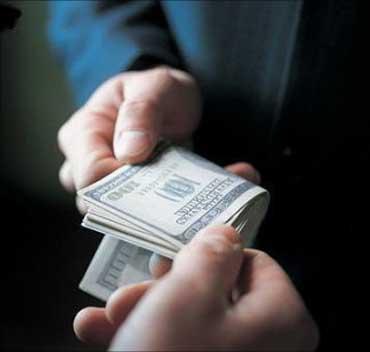
Percentage of respondents per country/territory who paid a bribe to one of eight services in the last 12 months
India
54 per cent of people in India paid a bribe in the last 12 months
Pakistan
34 per cent of people in Pakistan
Bangladesh
39 per cent of people in Bangladesh
Sierra Leone
84 per cent of people in Sierra Leone
Sri lanka
19 per cent of people in Sri Lanka
USA
7 per cent of people in USA
Canada
3 per cent of people in Canada
Afghanistan
46 per cent of people in Afghanistan
Nepal
31 per cent of people in Nepal
Kenya
70 per cent of people in Kenya
Japan
1 per cent of people in Japan
Egypt
36 per cent of people in Egypt
...
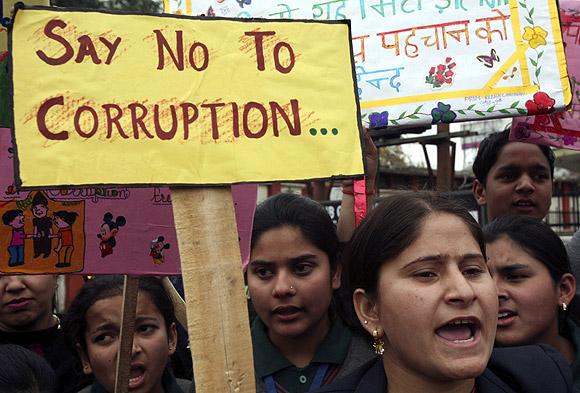
Percentage of respondents who believe ordinary people can make a difference in the fight against corruption
India
55 per cent of people in India believe they can make a difference in the fight against corruption
Pakistan
69 per cent of people in Pakistan
Nepal
86 per cent of people in Nepal
Bangladesh
92 per cent of people in Bangladesh
Sri Lanka
72 per cent of people in Sri Lanka
...
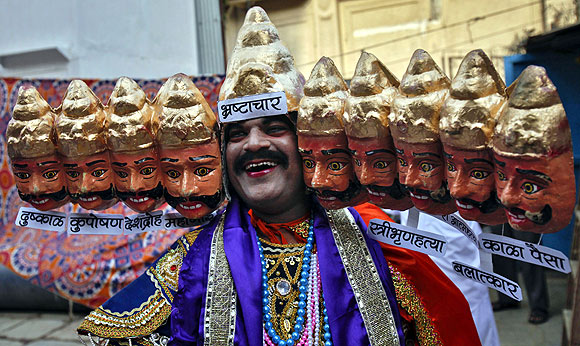
How effective do you think your government's actions are in the fight against corruption?
40 per cent say it has increased a lot
6 per cent say it has decreased a little
To what extent do you think corruption is a problem in the public sector in India
47 per cent say it is a serious problem
To what extent is this government run by a few big entities acting in their own best interests?
20 per cent say not at all
12 per cent say to a large extent
2 per cent say entirely
How effective do you think your government's actions are in the fight against corruption?
26 per cent say they are very ineffective
23 per cent say they are neither effective or ineffective
7 per cent say it is effective
2 per cent say very effective
Percentage of respondents who felt these institutions were affected by corruption in India
86 per cent of people in India thought that political parties were affected by corruption
65 per cent of people in India thought that parliament / legislature was affected by corruption
20 per cent of people in India thought that military was affected by corruption
30 per cent of people in India thought that NGOs were affected by corruption
41 per cent of people in India thought that media was affected by corruption
44 per cent of people in India thought that religious bodies were affected by corruption
50 per cent of people in India thought that business was affected by corruption
61 per cent of people in India thought that education systems were affected by corruption
45 per cent of people in India thought that judiciary was affected by corruption
56 per cent of people in India thought that medical and health services were affected by corruption
75 per cent of people in India thought that police were affected by corruption
65 per cent of people in India thought that public officials and civil servants were affected by corruption
...
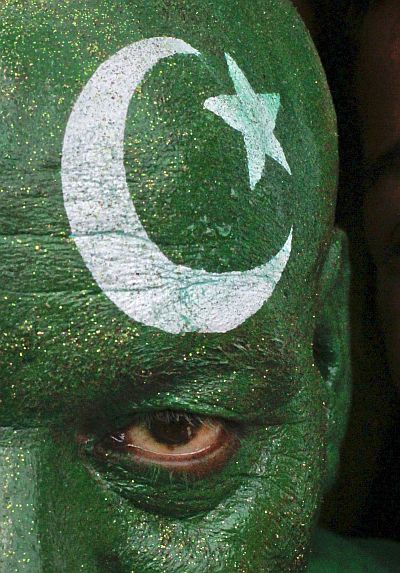
Over the past two years how has the level of corruption in Pakistan changed?
54 per cent say it has increased a lot
5 per cent say it has decreased a lot
To what extent do you think corruption is a problem in the public sector in Pakistan?
75 percent say it is a serious problem
16 per cent say it is a problem
2 per cent say it is not really a problem
To what extent is this government run by a few big entities acting in their own best interests?
48 per cent say entirely
9 per cent say limited extent
6 per cent say not at all
How effective do you think your government's actions are in the fight against corruption?
52 per cent say they are very ineffective
16 per cent say they are neither effective nor ineffective
Percentage of respondents who felt these institutions were affected by corruption in Pakistan
76 per cent of people in Pakistan thought that political parties were affected by corruption
63 per cent of people in Pakistan thought that parliament / legislature was affected by corruption
34 per cent of people in Pakistan thought that military was affected by corruption
39 per cent of people in Pakistan thought that NGOs were affected by corruption
36 per cent of people in Pakistan thought that media was affected by corruption
27 per cent of people in Pakistan thought that religious bodies were affected by corruption
43 per cent of people in Pakistan thought that business was affected by corruption
43 per cent of people in Pakistan thought that education systems were affected by corruption
45 per cent of people in Pakistan thought that judiciary was affected by corruption
46 per cent of people in Pakistan thought that medical and health services were affected by corruption
82 per cent of people in Pakistan thought that police were affected by corruption
81 per cent of people in Pakistan thought that public officials and civil servants were affected by corruption
...
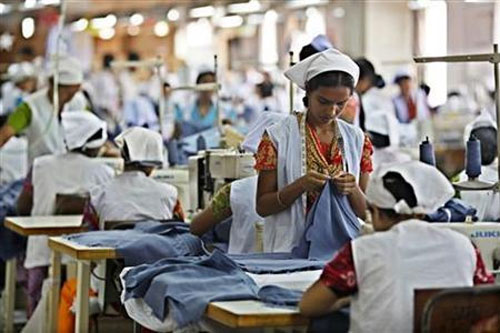
Over the past two years how has the level of corruption in Bangladesh changed?
34 per cent say it has increased a lot
14 per cent say it has stayed the same
5 per cent say it has decreased a lot
To what extent do you think corruption is a problem in the public sector in Bangladesh?
55 per cent say it is a serious problem
15 per cent say it is a slight problem
3 per cent say it is not a problem at all
To what extent is this government run by a few big entities acting in their own best interests?
17 per cent say entirely
30 per cent say somewhat
10 per cent say not at all
How effective do you think your government's actions are in the fight against corruption?
8 per cent say they are very ineffective
42 per cent say they are neither effective nor ineffective
3 per cent say they are very effective
Percentage of respondents who felt these institutions were affected by corruption in Bangladesh
45 per cent of people in Bangladesh thought that political parties were affected by corruption
41 per cent of people in Bangladesh thought that parliament / legislature was affected by corruption
5 per cent of people in Bangladesh thought that military was affected by corruption
6 per cent of people in Bangladesh thought that NGOs were affected by corruption
9 per cent of people in Bangladesh thought that media was affected by corruption
4 per cent of people in Bangladesh thought that religious bodies were affected by corruption
18 per cent of people in Bangladesh thought that business was affected by corruption
12 per cent of people in Bangladesh thought that education systems were affected by corruption
53 per cent of people in Bangladesh thought that judiciary was affected by corruption
33 per cent of people in Bangladesh thought that medical and health services were affected by corruption
64 per cent of people in Bangladesh thought that police were affected by corruption
29 per cent of people in Bangladesh thought that public officials and civil servants were affected by corruption
...
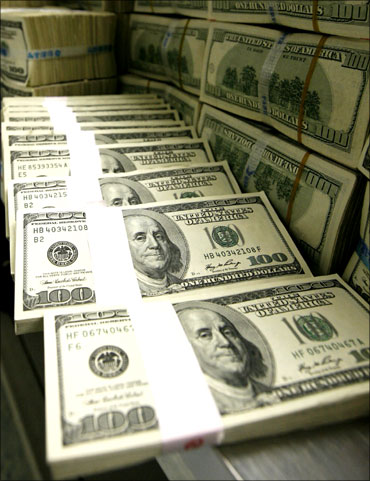
Percentage of respondents who felt these institutions were affected by corruption in United States
76 per cent of people in United States thought that political parties were affected by corruption
61 per cent of people in United States thought that parliament / legislature was affected by corruption
30 per cent of people in United States thought that military was affected by corruption
30 per cent of people in United States thought that NGOs were affected by corruption
58 per cent of people in United States thought that media was affected by corruption
35 per cent of people in United States thought that religious bodies were affected by corruption
53 per cent of people in United States thought that business was affected by corruption
34 per cent of people in United States thought that education systems were affected by corruption
42 per cent of people in United States thought that judiciary was affected by corruption
43 per cent of people in United States thought that medical and health services were affected by corruption
42 per cent of people in United States thought that police were affected by corruption
55 per cent of people in United States thought that public officials and civil servants were affected by corruption
...
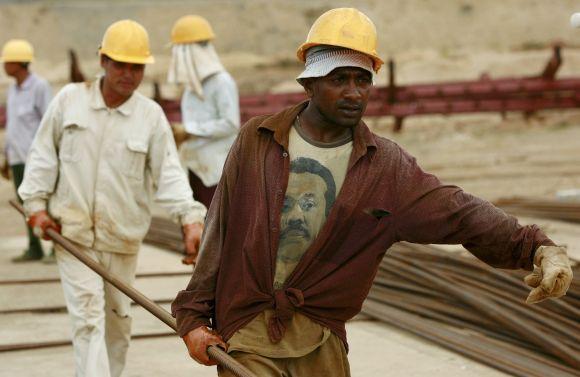
Percentage of respondents who felt these institutions were affected by corruption in Sri Lanka
51 per cent of people in Sri Lanka thought that political parties were affected by corruption
39 per cent of people in Sri Lanka thought that parliament / legislature was affected by corruption
13 per cent of people in Sri Lanka thought that military was affected by corruption
23 per cent of people in Sri Lanka thought that NGOs were affected by corruption
20 per cent of people in Sri Lanka thought that media was affected by corruption
10 per cent of people in Sri Lanka thought that religious bodies were affected by corruption
23 per cent of people in Sri Lanka thought that business was affected by corruption
33 per cent of people in Sri Lanka thought that education systems were affected by corruption
21 per cent of people in Sri Lanka thought that judiciary was affected by corruption
21 per cent of people in Sri Lanka thought that medical and health services were affected by corruption
64 per cent of people in Sri Lanka thought that police were affected by corruption
33 per cent of people in Sri Lanka thought that public officials and civil servants were affected by corruption
...

Percentage of respondents who felt these institutions were affected by corruption in Afghanistan
36 per cent of people in Afghanistan thought that political parties were affected by corruption
40 per cent of people in Afghanistan thought that parliament / legislature was affected by corruption
21 per cent of people in Afghanistan thought that military was affected by corruption
34 per cent of people in Afghanistan thought that NGOs were affected by corruption
21 per cent of people in Afghanistan thought that media was affected by corruption
20 per cent of people in Afghanistan thought that religious bodies were affected by corruption
35 per cent of people in Afghanistan thought that business was affected by corruption
33 per cent of people in Afghanistan thought that education systems were affected by corruption
60 per cent of people in Afghanistan thought that judiciary was affected by corruption
31 per cent of people in Afghanistan thought that medical and health services were affected by corruption
33 per cent of people in Afghanistan thought that police were affected by corruption
43 per cent of people in Afghanistan thought that public officials and civil servants were affected by corruption
...
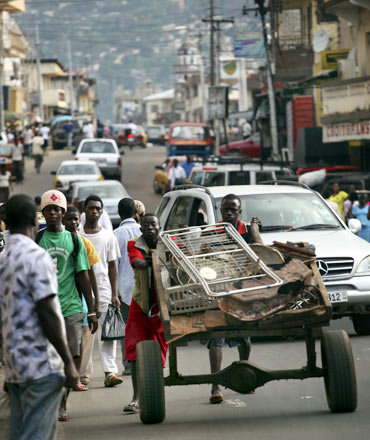
Percentage of respondents who felt these institutions were affected by corruption in Sierra Leone
41 per cent of people in Sierra Leone thought that political parties were affected by corruption
53 per cent of people in Sierra Leone thought that parliament / legislature was affected by corruption
33 per cent of people in Sierra Leone thought that military was affected by corruption
33 per cent of people in Sierra Leone thought that NGOs were affected by corruption
47 per cent of people in Sierra Leone thought that media was affected by corruption
18 per cent of people in Sierra Leone thought that religious bodies were affected by corruption
38 per cent of people in Sierra Leone thought that business was affected by corruption
64 per cent of people in Sierra Leone thought that education systems were affected by corruption
74 per cent of people in Sierra Leone thought that judiciary was affected by corruption
55 per cent of people in Sierra Leone thought that medical and health services were affected by corruption
79 per cent of people in Sierra Leone thought that police were affected by corruption
42 per cent of people in Sierra Leone thought that public officials and civil servants were affected by corruption
...